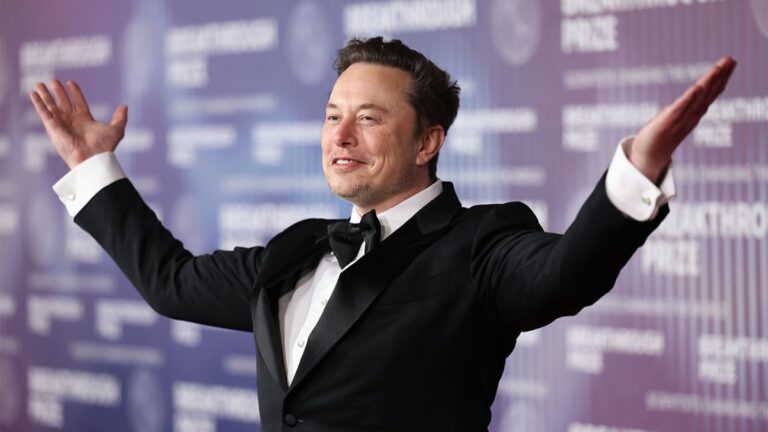xAI, Elon Musk’s rival to 10-month-old AI phenomenon OpenAI, is raising $6 billion at a pre-money valuation of $18 billion, according to a reliable source close to the deal. The deal – which would give investors a quarter of the company – is expected to be finalized in the coming weeks, unless the terms of the deal change.
The terms of the agreement have already changed once. Last weekend, Jared Birchall, who heads Musk’s family office, told potential investors that xAI was raising $3 billion at a pre-money valuation of $15 billion. Given the number of investors clamoring to participate in the operation, these figures were quickly adjusted.
Our source says: “We all got an email that basically said, ‘It’s now $6 billion out of $18 billion, and don’t complain because a lot of other people want in.’ »
Investors who have been lobbying for months to participate in the operation are paying little attention. Sequoia Capital and Future Ventures, the venture capital fund co-founded by Musk’s longtime friend Steve Jurvetson, are participating in the funding round.
Other participants likely include Valor Equity Partners and Gigafund, whose founders are also part of Musk’s inner circle, which mixes the personal and private. (Outreach efforts to these investors have gone unanswered; xAI has no press function.)
Jurvetson serves on the board of directors of SpaceX and was a director of Tesla until 2020. Gigafund co-founder Luke Nosek, who previously co-founded Founders Fund with investor Peter Thiel, was the first venture capitalist to write a check to SpaceX and has served on its board of directors ever since. Valor founder Antonio Gracias was among the first investors in Tesla; like Jurveston, he is a former director of Tesla and also serves on the board of directors of SpaceX.
Our source said all other investors are unclear who is in the deal because of how the commitments were obtained. “It’s a Zoom call and it’s just you, Elon and Jared (on the other side) at a table with engineers.”
The pitch, this individual says, is captivating.
xAI’s marketing literature already makes it clear that the company’s ambition is to connect the digital and physical worlds, but it may not be widely understood that Musk plans to do so by mining training data from each of its companies, including Tesla, SpaceX, its tunneling company Boring Company and Neuralink, which develops computer interfaces that can be implanted in the human brain.
Of course, another Musk company is X. The social media platform has already integrated Grok, xAI’s months-old chatbot, into the platform as a paid add-on. Yet that’s just one piece of what Musk is telling investors that will become a sprawling virtual cycle.
With Grok, for example, X is both a client and provides massive distribution to Grok. Eventually (the talk is), Grok will receive data from Musk’s other companies, helping him master the physical world in potentially infinite ways, starting with truly self-driving cars.
Another likely beneficiary would be Tesla’s humanoid robot, Optimus. Today, the Tesla robot is still in the laboratory, but Musk told analysts on a call earlier this week, Optimus will be able to perform tasks at Tesla factories by the end of this year. Even if that timeline proves ambitious, these nifty assistants might be able to do more — and faster than previously imagined — if Musk’s overall vision comes to fruition.
Meanwhile, the most immediate beneficiary of xAI’s burgeoning momentum might be X itself. Even if the platform has become a kind of toxic cesspool 1.5 years since Musk bought it and then lost much of its valueMusk had already ensured that
What all this means for OpenAI — which last year became the fastest-growing startup in history — is an open question. Musk has had OpenAI in his sights since the company’s rise, following the release of its chatbot ChatGPT.
Musk co-founded OpenAI in 2015 and left its board of directors in 2018 due to disagreements over the direction of the company, which began life as a nonprofit before becoming a for-profit entity lucrative. Musk has since publicly harangued OpenAI co-founder Sam Altman and mocked the brand, suggesting it should instead be called himself. ClosedAI.
Last month, when Musk open source the architecture of xAI’s first chatbot, “Grok-1”, meaning anyone can now download and modify it, the move was another part of its ongoing campaign to distinguish its efforts from OpenAI, who hasn’t shared his secret sauce with the world, and what is Musk now continue.


